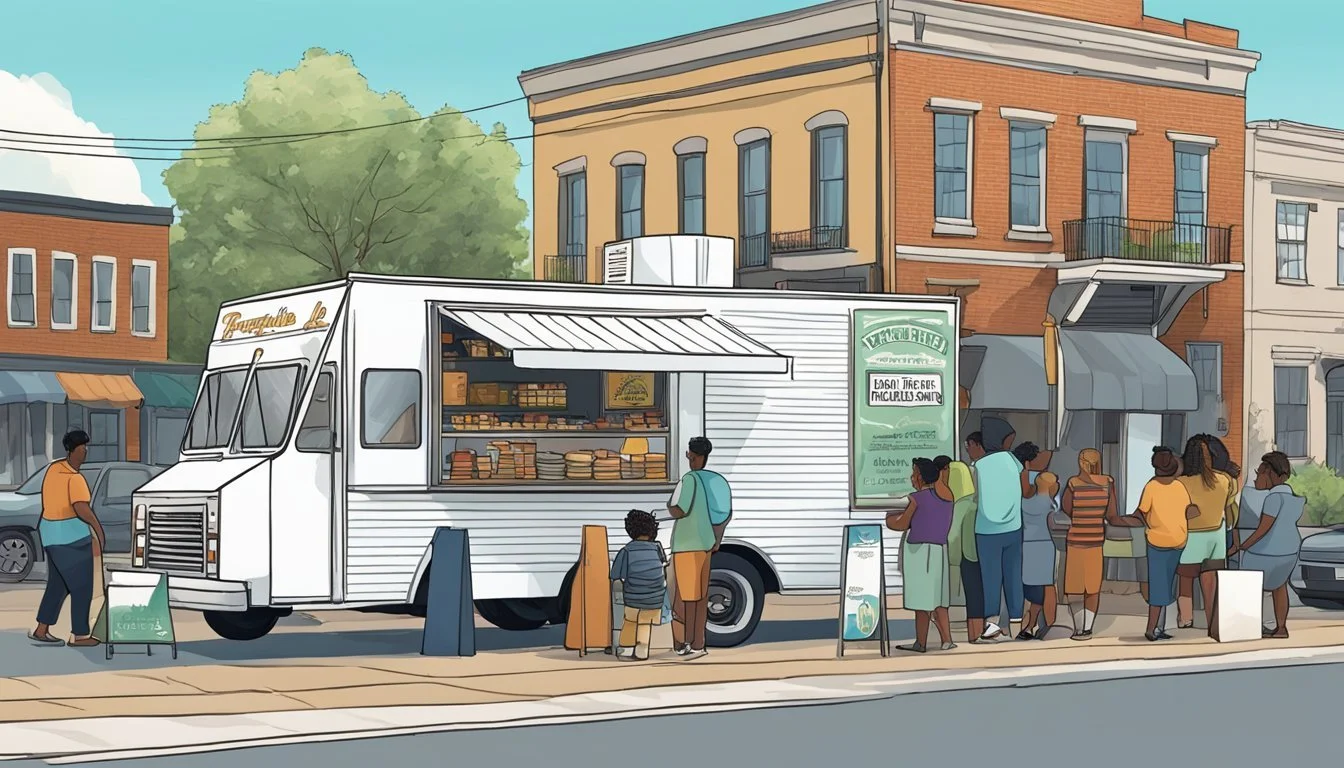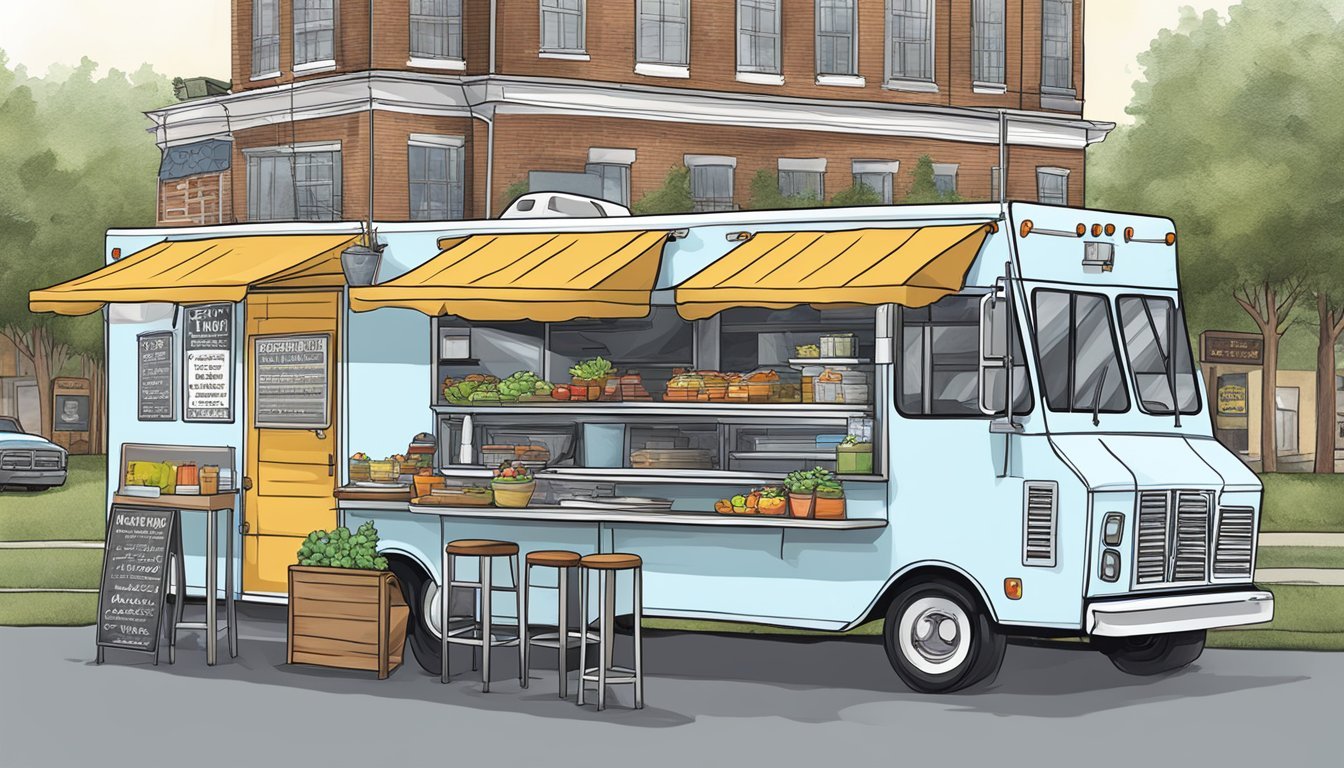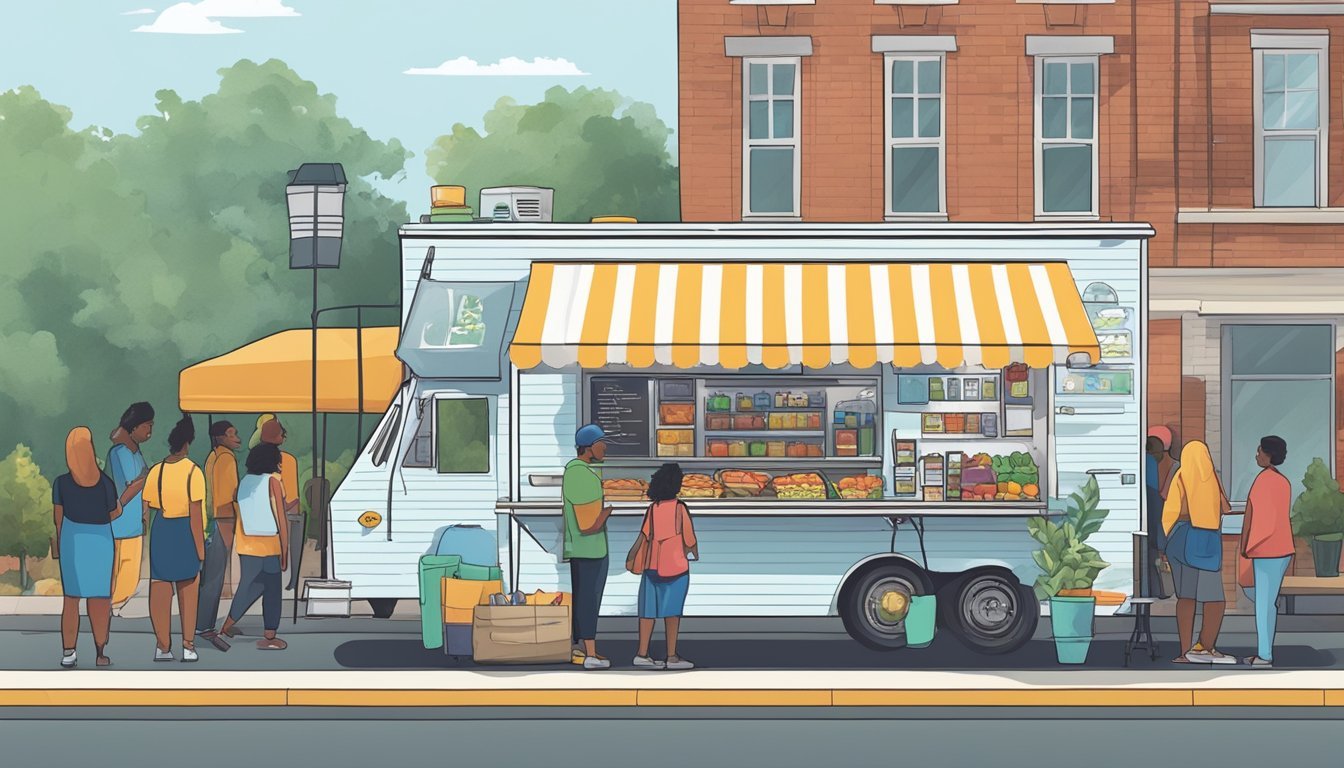Food Truck Laws Fayetteville, North Carolina
Regulations for Mobile Vendors
Operating a food truck in Fayetteville, North Carolina, comes with a set of specific regulations designed to ensure safety, hygiene, and fair business practices. Local ordinances are in place to dictate how and where food trucks can operate, balancing the opportunities for entrepreneurs with the overall aesthetics and traffic patterns of the city. These laws govern everything from the issuance of business licenses to the frequency of vehicle inspections, ensuring that food trucks maintain the same high standards of operation as their brick-and-mortar counterparts.
In recent years, Fayetteville policymakers have updated the laws affecting mobile vendors, making it more straightforward for food truck operators to conduct business in the city. The adjustments to these regulations are a result of collaborations between city officials and local business owners, aiming to nurture a vibrant street food culture while addressing the logistical nuances of mobile vending. Such measures include designated operating zones and ensuring that food trucks meet the health and safety standards set by the Department of Health and Human Services.
It is crucial for prospective and current food truck owners to stay informed about these requirements to avoid potential legal complications and fines. Compliance with Fayetteville's food truck laws guarantees that the community receives a diversity of culinary offerings served in a manner that is both safe and enjoyable.
Getting Started with Your Food Truck
Before launching a food truck in Fayetteville, North Carolina, owners must navigate a series of legal steps. These steps ensure that the business is registered properly and compliant with local regulations.
Business Registration and Entity Formation
To operate a food truck in Fayetteville, one must first establish a business entity. This involves deciding on the type of entity, such as a sole proprietorship, partnership, limited liability company (LLC), or corporation. They will need to register with the North Carolina Secretary of State. The process includes submitting the appropriate formation documents and obtaining an Employer Identification Number (EIN) from the Internal Revenue Service (IRS) for tax purposes.
Securing a Business License
After registering the business entity, the next step is obtaining a business license. To legally operate in Fayetteville, they must apply for this license through the North Carolina Department of Health and Human Services. It's imperative to comply with all local health and safety regulations to avoid penalties and ensure the business runs smoothly.
Food Truck Specific Regulations
In Fayetteville, North Carolina, the operation of food trucks is governed by specific regulations that include obtaining the necessary permits, adhering to zoning and parking requirements, and following operational guidelines.
Mobile Vendor Permits
Food trucks, categorized as mobile vendors, must secure various permits prior to commencing business operations. A key permit includes the Mobile Food Facility Permit, which ensures adherence to local health and safety standards. Additionally, Fayetteville may require a business-specific Employee Health Permit to protect consumer wellbeing.
Zoning and Parking Regulations
Fayetteville's local government enacts zoning restrictions to dictate where food trucks may operate. These regulations are critical to maintain the balance between food truck accessibility and the interests of brick-and-mortar establishments. Food trucks must park in areas designated by the zoning laws. Failure to comply can result in penalties or revocation of permits.
Food Truck Operation Guidelines
Food truck operation in Fayetteville comes with a set of guidelines that owners must follow to ensure public safety and business integrity. These include maintaining cleanliness standards and the proper handling and storage of food. Food truck owners must also comply with specific regulations tailored for mobile food facilities, including those concerning the preparation and service of food. This compliance is not just a legal formality but a commitment to food safety and customer satisfaction.
Health and Safety Compliance
Ensuring health and safety compliance is critical for food trucks operating in Fayetteville, North Carolina. It involves meeting stringent inspection requirements, adhering to food safety standards, and maintaining proper equipment and facility standards as mandated by health laws.
Inspection Requirements
Food trucks in Fayetteville are subject to regular inspections by the North Carolina Department of Health and Human Services to ensure public safety. They must undergo at least an annual inspection, where licensed inspectors evaluate crucial elements such as the vehicle’s brakes, fuel system, steering, suspension, electrical system, and exhaust system. Compliance with these safety measures is non-negotiable.
Food Safety Standards
The department of health and human services enforces food safety standards that include proper food preparation, temperature control to prevent foodborne illnesses, and the need for a Food Protection Manager Certification. Operators must also undergo ServSafe or equivalent food safety training, ensuring comprehensive knowledge of health and safety regulations.
Equipment and Facility Standards
Proper equipment and facility upkeep are mandatory. Food trucks must be equipped with facilities that allow for safe food handling and sanitation. This includes adequate storage with temperature control and clean preparation surfaces. Regular maintenance of the food truck’s infrastructure is critical for remaining in compliance with state and local health regulations.
Insurance and Liability
In Fayetteville, North Carolina, food truck operators must navigate insurance and liability with precision to ensure compliance with local regulations. They are expected to maintain appropriate insurance coverage designed to protect the business, guests, and property from unforeseen events.
Insurance Coverage
Food truck owners in Fayetteville are required to hold general liability insurance, which safeguards against third-party claims such as bodily injury, property damage, and personal injury potentially linked to the operation of the food truck. Specific limits of coverage may be mandated by local laws, which must be met to operate legally within the city.
Key Coverage Areas:
Bodily injury
Property damage
Personal injury
Vehicle and Equipment Insurance
Apart from general liability insurance, there is an emphasis on insurance policies covering the food truck as a vehicle, along with its equipment. This type of insurance not only encompasses the food truck's physical condition and roadworthiness, as indicated by mandatory vehicle inspections, but also covers the specialized equipment essential for food preparation and service.
Crucial Insurance Types:
Collision coverage
Comprehensive coverage
Equipment insurance
Collision coverage: Handles damages to the food truck from accidents involving other vehicles or objects.
Comprehensive coverage: Protects against non-collision-related incidents, such as theft, vandalism, or weather-related damage.
Equipment insurance: Offers specific protection for the unique culinary tools and appliances housed within the food truck.
Operational Aspects
Food trucks in Fayetteville must adhere to stringent operational procedures focused on hygiene and sanitation to ensure public health safety. These regulations govern the ways food is handled and served, as well as how waste is managed.
Handling and Serving Food
In Fayetteville, food truck operators must obtain a business license and a Food Service Establishment Permit to ensure they follow the correct procedures for handling and serving food. They are required to:
Maintain clean and sanitized surfaces where food is prepared and served.
Ensure employees practice proper hand hygiene, including frequent washing and the use of gloves when necessary.
Food handlers are also mandated to have undergone proper training on food safety to minimize the risk of foodborne illnesses.
Waste Management and Sanitation
Proper waste management and sanitation are critical for food truck operations to prevent contamination and pest infestations. Fayetteville’s regulations stipulate that food trucks must:
Securely store and dispose of waste in designated receptacles.
Keep waste disposal areas clean to prevent attracting rodents and insects.
Have a regular schedule for waste disposal and ensure the sanitation of the entire food truck, including food preparation and storage areas.
Compliance with these operational aspects is not only about adhering to the law but also about ensuring the safety and satisfaction of customers.
Additional Operational Considerations
When running a food truck in Fayetteville, certain regulations extend beyond the basics of permits and day-to-day operations. Two key aspects that require careful attention are the regulations governing the service of alcohol and the requisite standards for food labeling, especially regarding allergen information.
Alcohol Service and Permits
In Fayetteville, the operation of a food truck that wishes to serve alcohol must comply with both state and local regulations. This includes obtaining a Liquor License which necessitates adherence to North Carolina’s alcohol control policies. Food trucks aiming to include a bar element need to understand that a comprehensive process is required to secure licensing, and this may include additional local ordinances specific to Fayetteville.
Food Labeling and Allergen Information
Clear and precise food labeling is mandated to keep consumers informed and safe. Food trucks must ensure that all packaging conveys necessary allergen information and ingredient lists. This involves transparent communication regarding common allergens such as nuts, dairy, gluten, and shellfish, (What wine goes well with shellfish?) which must be declared clearly to prevent adverse health reactions in patrons.
Engaging with the Fayetteville Community
Fayetteville, North Carolina has cultivated a vibrant community through local events and dedicated food truck courts that connect food truck vendors with the local populace. These platforms enable the deployment of a variety of local food options, fostering relationships between food truck owners and residents.
Participation in Local Events
Food truck operators in Fayetteville find value in participating in local events which serve as an avenue for community engagement and culinary contribution. They contribute to the festive atmosphere at events like Fayetteville Dogwood Festival and Fourth Friday, offering a diverse range of cuisines. These gatherings not only boost visibility but also allow for a direct connection with their clienteles, thereby understanding community preferences better.
Setting Up at Food Truck Courts
The food truck courts, such as the Haymount Truck Stop, represent a core component in the Fayetteville food truck industry. They provide a consistent location where customers can expect a selection of food trucks, bolstering repeat business and establishing a collective presence. Establishing a spot within these courts serves as a stable platform for food truck owners to grow their brand within the community, creating a synergistic relationship with fellow vendors and local consumers.
Financial Aspects of Food Truck Business
The financial success of a food truck in Fayetteville, North Carolina, pivots on the strategic management of fees and a thorough understanding of potential penalties which could impact profitability.
Understanding Fees and Penalties
For a food truck owner in Fayetteville, initial and ongoing fees are a crucial component of financial planning. These fees often include costs for essential licenses and permits. For instance, there's a seller's permit, which is mandatory for sales tax purposes, and a potential liquor license if alcohol is to be served.
An Employee Health Permit is another fee that food truck operators must consider. This fee ensures that all employees are trained in food safety and handling, upholding public health standards.
Operational costs also encompass regular inspection fees required to maintain compliance with local health regulations. Keeping track of the frequency and cost of these inspections is pivotal for forecasting monthly expenses.
On the other hand, penalties become relevant if a food truck owner fails to adhere to the city's food truck laws. Non-compliance can result in fines and may necessitate a food truck to cease operations temporarily or permanently, severely affecting the business's bottom line.
For example, food trucks in Fayetteville must sell from the sidewalk-facing side and move locations every four hours, a regulation known as "bumping." Failing to comply can lead to penalties, which create unnecessary costs and disrupt service.
To minimize the risk of penalties, food truck owners should stay abreast of all local ordinances, which may change, impacting the required permits and associated costs to operate within the law.
Building a Successful Food Truck in Fayetteville
In Fayetteville, North Carolina, launching a food truck involves strategic planning and understanding of the local regulations. Entrepreneurs can navigate this landscape to establish a thriving mobile eatery.
Local Market Analysis
A comprehensive local market analysis is paramount for any food truck business planning to establish itself in Fayetteville. Entrepreneurs should first obtain the necessary permits and licenses to ensure compliance with city and state regulations. It's vital to research the community preferences, identify potential competitors among other food trucks and restaurants, and understand the demands of Fayetteville's diverse demographic. Analyses should include:
Population demographics
Popular locations and events
Peak business hours for food trucks
Price sensitivity and customer spending habits
This intelligence paves the way for informed decision-making regarding menu offerings, pricing, and locations, assisting businesses in aligning with local consumer tastes and the local health department guidelines.
Marketing and Customer Engagement
Effective marketing and customer engagement are key drivers of a food truck's success in Fayetteville. Building a recognizable brand and a robust online presence can help businesses connect with the community. They could employ strategies such as:
Engaging social media campaigns with a focus on the food truck's specialties
Collaboration with local events and business districts
Loyalty programs catering to repeat customers
By prioritizing customer experience and leveraging both digital and community-based marketing methods, food truck operators can create a loyal following within the Fayetteville community. Direct engagement, such as gathering customer feedback and promoting new menu items, enhances the brand's visibility and appeal.








